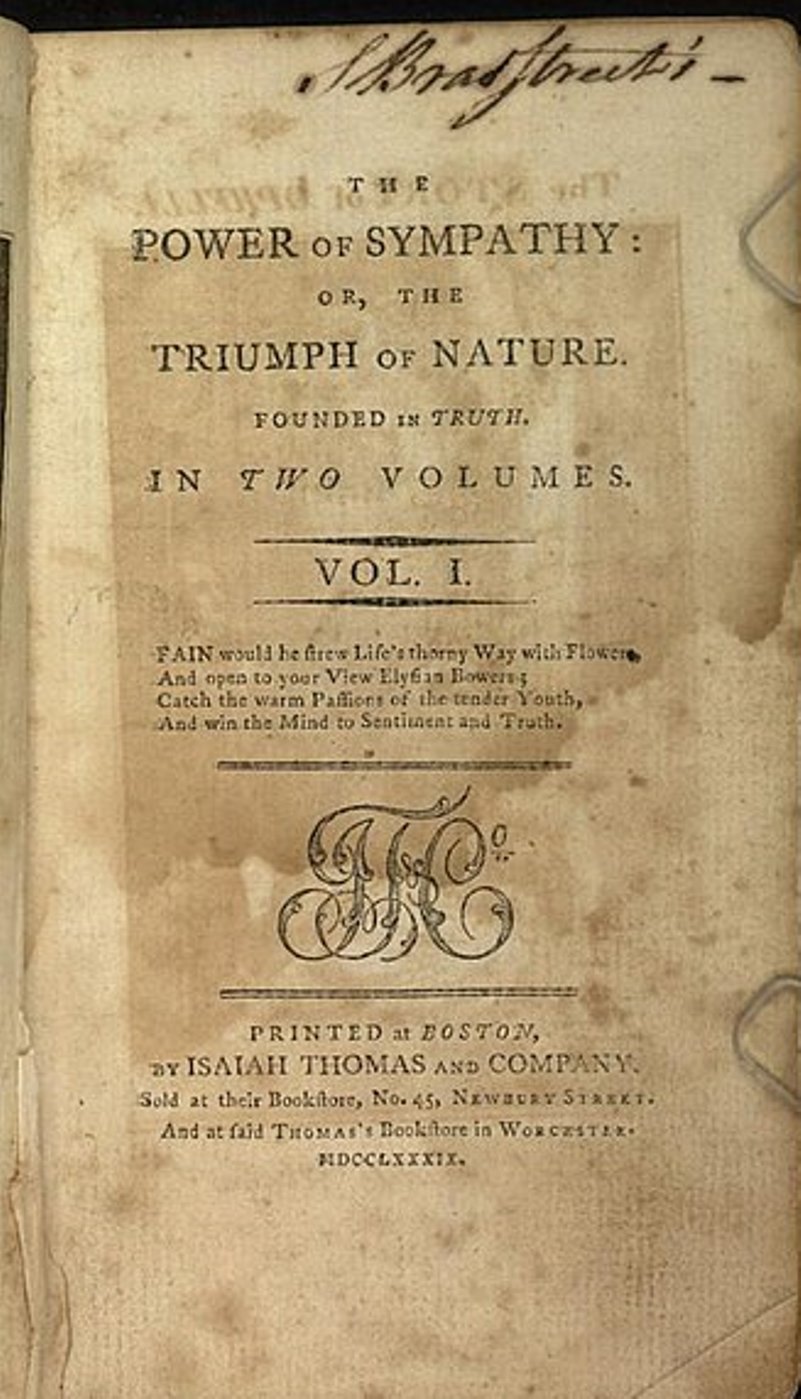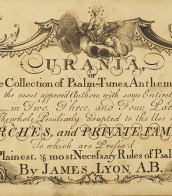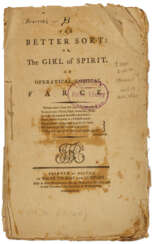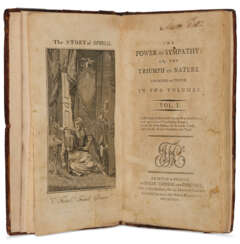William Hill Brown (1765 - 1793) — Auction price

William Hill Brown was an 18th-century American novelist writer.
Brown apparently believed that one of the main purposes of literature was to instill some moral values. It is on this conviction that his novel The Power of Sympathy, or The Triumph of Truth-Based Nature (1789), which is considered the first American novel, is built. It caused a great scandal, however, because it is based on a real-life gruesome story of kidnapping, accidental incest, and suicide.
This novel is a prime example of the American approach to the European genre of the epistolary novel, but with lush descriptions of landscapes and a frank discussion of American slavery. This book can also be considered one of the first explicitly American works of literary criticism, containing lengthy reflections on the nature and purpose of literature and its role in moral formation, especially for women. The popularity of this work initiated the creation of many sentimental novels in the United States.
During his short life, Brown also wrote the romantic novel Harriot, or Domestic Reconciliation (1789), the play West Point Preserved (1797), a tragedy about the death of a Revolutionary spy, a series of verse fables, the West Indies-style comedy Penelope, and a second short novel about incest and seduction, Ira and Isabella.


William Hill Brown was an 18th-century American novelist writer.
Brown apparently believed that one of the main purposes of literature was to instill some moral values. It is on this conviction that his novel The Power of Sympathy, or The Triumph of Truth-Based Nature (1789), which is considered the first American novel, is built. It caused a great scandal, however, because it is based on a real-life gruesome story of kidnapping, accidental incest, and suicide.
This novel is a prime example of the American approach to the European genre of the epistolary novel, but with lush descriptions of landscapes and a frank discussion of American slavery. This book can also be considered one of the first explicitly American works of literary criticism, containing lengthy reflections on the nature and purpose of literature and its role in moral formation, especially for women. The popularity of this work initiated the creation of many sentimental novels in the United States.
During his short life, Brown also wrote the romantic novel Harriot, or Domestic Reconciliation (1789), the play West Point Preserved (1797), a tragedy about the death of a Revolutionary spy, a series of verse fables, the West Indies-style comedy Penelope, and a second short novel about incest and seduction, Ira and Isabella.




